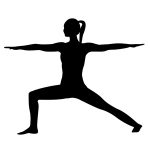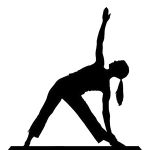Yoga for Every Body
Month: September 2015
Yoga for Every Body
Believe it or not, yoga is not just for 20-somethings in tights, carrying specialty coffees in one hand and yoga mats in the other. You can do yoga at any age—really! The benefits are just as significant as we age.
Yoga is particularly helpful for seniors dealing with joint stiffness, low back pain, balance problems and depression. Regular yoga practice can help us to sync communication between the right and left hemispheres of the brain, improve our agility and sharpen our memory.
It’s important to find the appropriate class for your health and level of conditioning. We encourage you to consult with your healthcare provider before joining a yoga class or trying the poses below.
The following provides a brief overview of yoga benefits for seniors and a glimpse at poses that support those benefits. The poses you see here can be made even gentler, or can be more advanced as your practice evolves.
Reduce Stress and Anxiety, and Improve Sleep

A number of studies have shown that yoga can help reduce stress and anxiety. By doing repetitive postures and focusing on breathing you can create a positive and contented state of mind while shifting the body into a state of relaxation.
—Try the bridge pose to strengthen your lower back and relax.
Increase Bone Density and Strengthen Bones

After age 40, we start to lose bone density each year, and eventually can lose about a half-pound of muscle per year for each year we’re not regularly engaged in resistance training. Yoga postures can significantly slow this trend, while improving posture and spinal health, and reducing back pain.
—Try the warrior II pose to strengthen the quadriceps and improve flexibility in the hip.
Increase Flexibility

It is not a requirement that we stiffen and tighten as we age. Yoga offers a gentle approach to improving flexibility by lengthening the spine, which helps improve nerve conduction to all of our organs.
—Try the triangle pose if you have arch problems or flat feet, and to improve hip flexibility and balance.
Original Source: MGH Development Office
Lebanese Field Workers Trained in BHI’s Stress Reduction Program
An interview with Dr. Zeina Chemali.
Dr. Chemali, of Massachusetts General Hospital, has taught the Benson-Henry Institute’s Stress Management and Resiliency Training program to health care workers who are caring for Syrian refugees all over Lebanon. Doing so provides the workers and the refugees resiliency skills to cope with this relentless humanitarian crisis.



